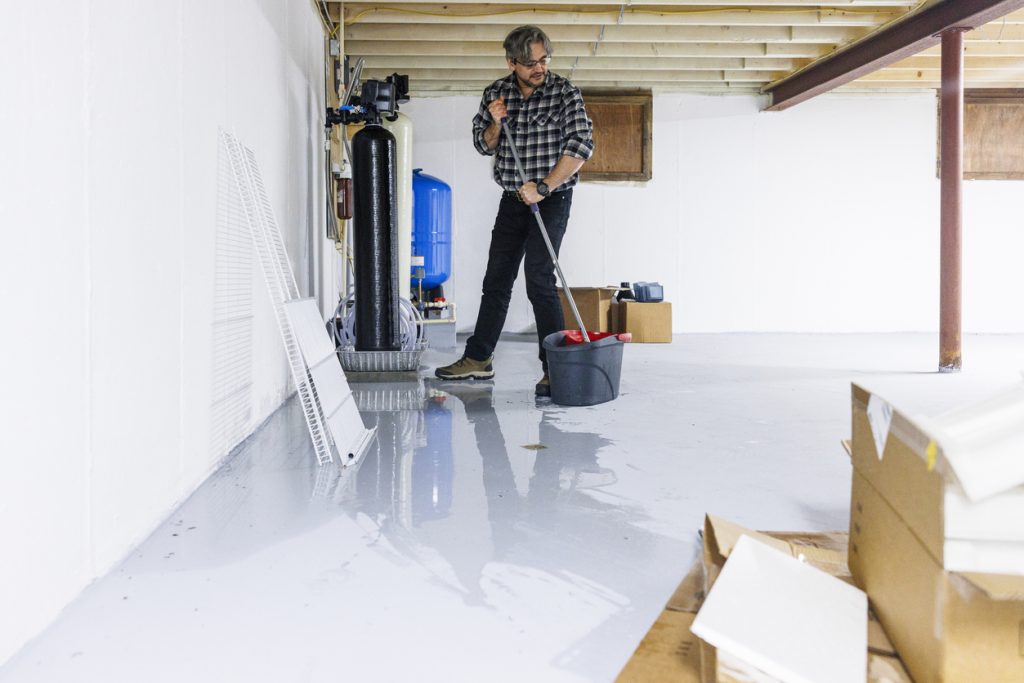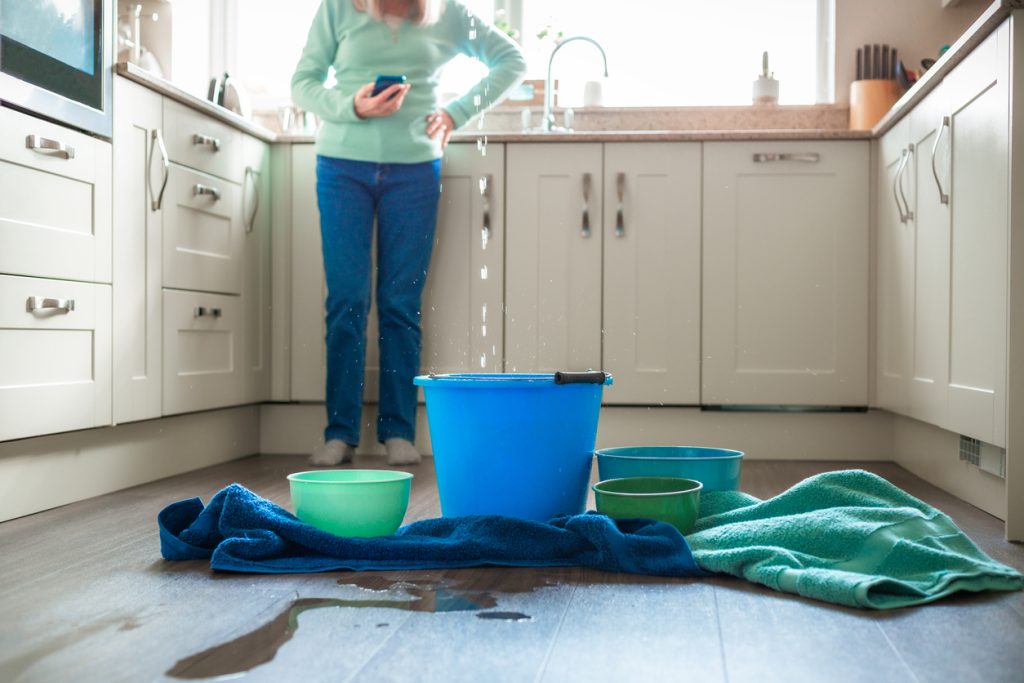Does Home Insurance Cover Water Damage? Here’s What Guelph Residents Should Know
Does Home Insurance Cover Water Damage? Here’s What Guelph Residents Should Know
Water damage can turn your peaceful home into a disaster zone, destroying your belongings and leading to expensive repairs, but does your home insurance actually cover it? The answer isn’t always straightforward. In Guelph, as in many other places, home insurance policies vary widely, and whether water damage is covered often depends on what caused it in the first place. This uncertainty can leave you feeling vulnerable and unprepared when the unexpected happens.
That’s why we’re here to break down exactly what you need to know about home insurance and water damage in Guelph. From understanding what’s typically included (and what’s not) to exploring important extras like mold remediation and coverage for additional living expenses, we’ll help you navigate the fine print. By the end, you’ll feel more confident about your policy and better equipped to protect your home when it matters most.
Understanding Water Damage and Home Insurance
Water damage is a common concern for homeowners, but whether your insurance covers it depends on several factors, including the cause of the damage. Home insurance policies are typically designed to protect against sudden and unexpected events, like a burst pipe or a storm that forces water into your home. However, not all water-related issues fall under this protection, and coverage specifics can vary by provider and policy.
Understanding the details of your policy is crucial, especially since two key factors often determine coverage: whether the damage was sudden or gradual, and whether it could have been prevented.
Types of Water Damage Covered
Standard home insurance often covers water damage from sudden, accidental events. Examples of such incidents include:
- Burst pipes
- Overflow from malfunctioning appliances
- Roof leaks due to storms
Each scenario implies an unforeseen event that causes damage. Having this coverage means your insurer will handle repair costs for such events, provided they meet your policy conditions.
What’s Typically Not Covered?
Gradual damage from lack of maintenance is often not included. Insurers expect homeowners to maintain their property to avoid issues. Examples of commonly excluded scenarios are:
- Long-term plumbing leaks
- Mold from neglected damp areas
- Damage due to poor home maintenance
Understanding these exclusions is key. If the damage results from negligence, your insurance may not assist with repair costs. Regular home maintenance and inspections can prevent these issues and ensure that claims are honored when necessary.
How Flooding and Water Leaks Impact Coverage
Understanding the distinction between flooding and water leaks is important for home insurance coverage. Insurers treat each differently and have specific implications. While standard home insurance often covers water leaks, flooding usually requires separate coverage.
Flood damage, unlike water leaks, occurs when water from outside enters your home. This could result from heavy rain or swollen rivers. Most insurers exclude flood damage from standard policies, so additional flood insurance is often needed. Without this extra coverage, homeowners could face significant financial burdens after a flood.
Water leaks, on the other hand, often involve issues like broken pipes or appliances. These are generally covered if they happen suddenly and are unexpected. Yet, not all leaks qualify. For instance, those that are gradual or stem from poor maintenance are typically not covered.
Regular inspections can help detect issues before they become significant problems. Spotting a leak early might prevent it from developing into a more complex and costly issue.
Flooding vs. Water Leaks
Flooding involves a large volume of water entering your home from an external source. Common causes include:
- Overflowing rivers
- Severe rainstorms
Water leaks result from internal problems such as:
- Faulty plumbing
- Appliance malfunctions
Policies usually require an endorsement for flood coverage. Checking your policy for terms related to water leaks is crucial to understanding what it protects.
Mold and Long-Term Damage Risks
Mold can develop if water damage isn’t addressed promptly. It’s not just an eyesore; it poses health risks too. Some home insurance policies offer mold coverage, but it’s often limited. Mold coverage typically applies if the mold results from a covered water damage claim. Preventing mold requires quick action and proper repair.
The risks of mold include:
- Respiratory issues
- Allergic reactions
Simple maintenance can avert mold growth. For example, ensuring good ventilation and promptly drying wet areas helps. Always report and address water damage swiftly to mitigate long-term effects and ensure your home remains safe and healthy. Understanding these nuances is vital for Guelph residents aiming to adequately protect their homes.
Should I File a Claim for Water Damage?
Deciding whether to file a claim for water damage requires careful consideration. Filing can seem like an obvious choice, but it’s not always the best option. Filing too many claims might increase premiums or even lead to policy cancellation. Therefore, weighing the benefits and drawbacks is essential.
Consider the extent of the damage and your deductible. If the repair cost far exceeds the deductible, filing a claim makes sense. However, if the damage is minor, handling it out of pocket could be smarter. Understanding when to file helps protect your financial interests.
Also, evaluate the cause of the damage. If it’s a covered peril, filing is often warranted. But, if the issue stems from something excluded, like neglect, your claim is likely to be denied. Understanding your policy helps avoid unnecessary claims.
Finally, assess the impact on your claims history. Frequent claims can negatively affect your relationship with your insurer. Saving claims for significant damage might be more advantageous in the long run.
When to Consider Filing
Filing a claim is advisable under certain conditions. Significant damage often warrants a claim. This includes extensive destruction that’s costly to repair. Common scenarios include:
- Burst pipes causing structural damage
- Severe leaks damaging multiple rooms
Ensure the damage source is a covered peril. This increases the likelihood of claim approval. Review your policy details to understand coverage better. Consulting with your insurance agent can provide additional clarity.
Situations Where Filing May Not Be Ideal
Some circumstances make filing a water damage claim less beneficial. If repairs are inexpensive, managing costs yourself could be wiser. Small issues, like minor leaks, often fall into this category. Consider these situations when avoiding a claim may be better:
- Repair costs are near or below your deductible
- Issues arise from long-term neglect or gradual damage
These scenarios might lead to claim denial, negatively impacting your claims history. Instead, investing in preventive maintenance can prevent future issues. Regularly inspecting plumbing and appliances mitigates the risk of severe damage and keeps your insurance record clean.
How to Protect Your Home from Water Damage
Preventing water damage is crucial to protecting your home and your investment. Simple steps can significantly reduce the risk. Regular maintenance is your first line of defense. Start by inspecting your home’s plumbing and roof. These areas are prone to leaks. Ensure seals around windows and doors are intact. Address wear and tear quickly to prevent water intrusion.
In addition to these measures, consider installing protective devices such as:
- Water sensors to detect leaks early
- Install sump pumps in vulnerable areas
- Upgrade to smart home systems for water shut-off alerts
These steps offer proactive protection against unexpected water issues. Regular inspections combined with technology enhance your home’s defense against water damage. Maintaining awareness and making timely upgrades can safeguard your property and provide peace of mind.
Home Insurance Policies for Guelph Homeowners
Understanding your home insurance policy, especially regarding water damage, is essential to avoid unexpected surprises. Every policy has its own details that affect what’s covered and how claims are handled, so reviewing it regularly is a smart move. Don’t hesitate to contact your insurance agent for clarification if anything feels unclear. The more you know about your coverage, the better equipped you’ll be to make informed decisions when it matters most.
Here are some key points to consider:
- Evaluate your current policy to ensure adequate water damage coverage.
- Ask about additional endorsements for floods or sewer backups if needed.
- Understand policy exclusions to know what’s not covered.
At Jeffery & Spence, we believe that staying informed and proactive is the best way to protect your home and everything in it. Understanding the ins and outs of your home insurance gives you the confidence to handle whatever unexpected situations come your way. Keep these final thoughts in mind as you look to safeguard your biggest investment—and when you’re ready, reach out to our team at Jeffery & Spence for a personalized quote on the home insurance policy that’s the right fit for you and your family.










